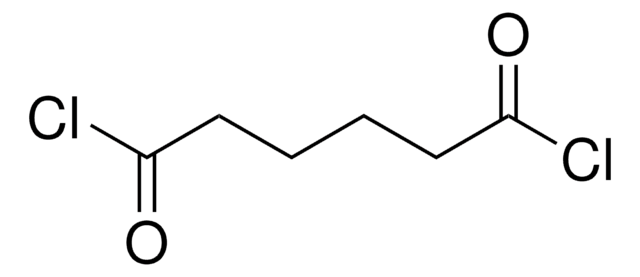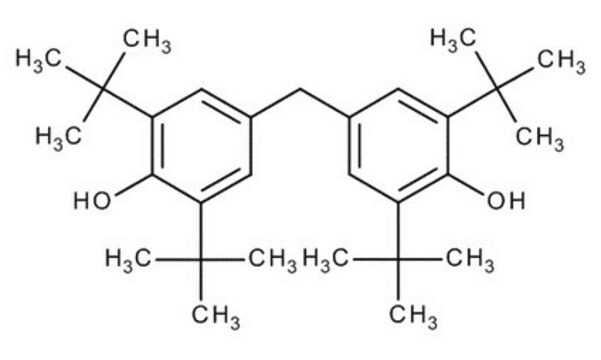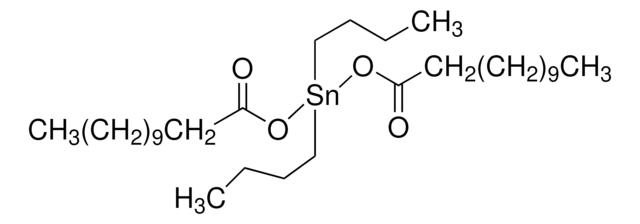422002
Hexamethylenediamine
technical grade, 70%
Synonym(s):
1,6-Diaminohexane, 1,6-Hexanediamine, HMDA
About This Item
Recommended Products
grade
technical grade
Quality Level
vapor density
4 (vs air)
Assay
70%
form
liquid
expl. lim.
6.3 %
technique(s)
gas chromatography (GC): suitable
refractive index
n20/D 1.439 (lit.)
bp
111-130 °C
mp
42-45 °C (lit.)
solubility
alcohol: soluble(lit.)
hydrocarbons: soluble(lit.)
water: soluble(lit.)
density
0.89 g/mL at 25 °C (lit.)
functional group
amine
SMILES string
NCCCCCCN
InChI
1S/C6H16N2/c7-5-3-1-2-4-6-8/h1-8H2
InChI key
NAQMVNRVTILPCV-UHFFFAOYSA-N
Gene Information
rat ... Ppm1a(24666)
Looking for similar products? Visit Product Comparison Guide
General description
Application
- polyamides and their hydrolytic and fungal degradability was investigated
- mullite ceramics
- dialkyl hexamethylene-1,6-dicarbamate (AHDC), via trans-esterification reaction of HDA and alkyl carbamates (AC) using FeCl3 as catalyst
Other Notes
Signal Word
Danger
Hazard Statements
Precautionary Statements
Hazard Classifications
Acute Tox. 4 Oral - Eye Dam. 1 - Skin Corr. 1B - STOT SE 3
Target Organs
Respiratory system
Storage Class Code
8A - Combustible corrosive hazardous materials
WGK
WGK 1
Flash Point(F)
201.2 °F
Flash Point(C)
94 °C
Choose from one of the most recent versions:
Already Own This Product?
Find documentation for the products that you have recently purchased in the Document Library.
Customers Also Viewed
Our team of scientists has experience in all areas of research including Life Science, Material Science, Chemical Synthesis, Chromatography, Analytical and many others.
Contact Technical Service














